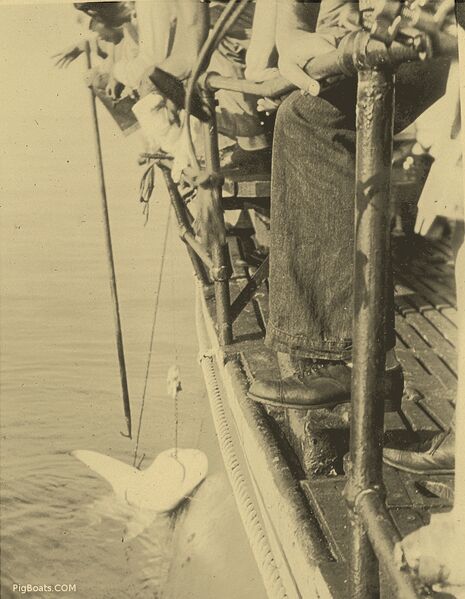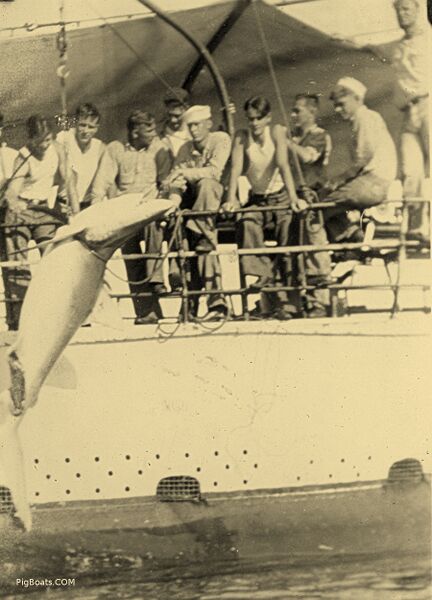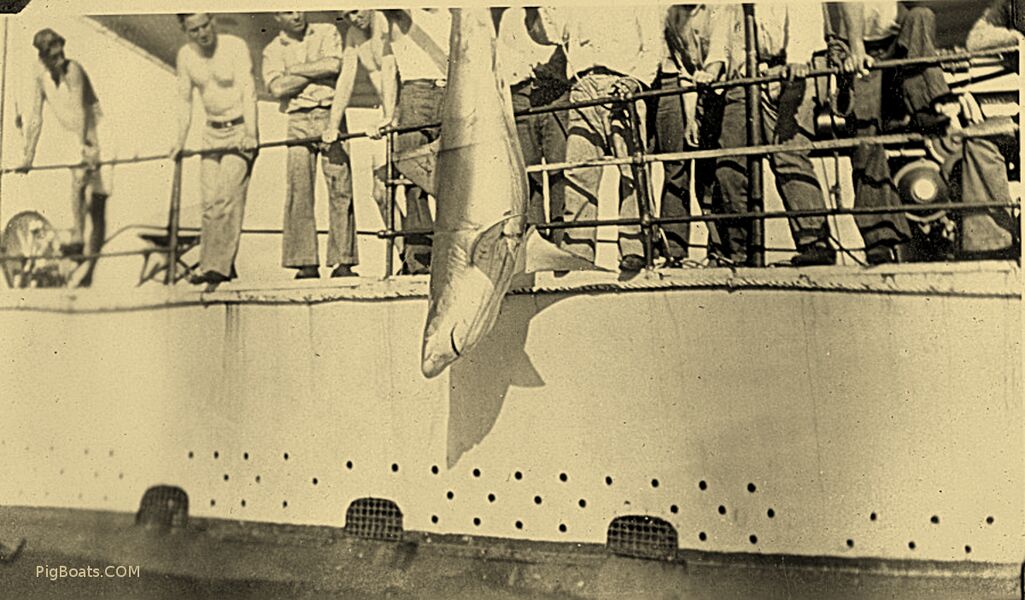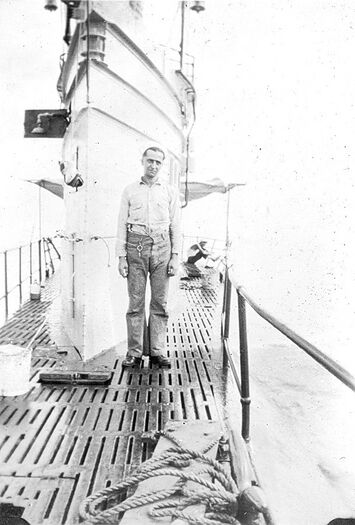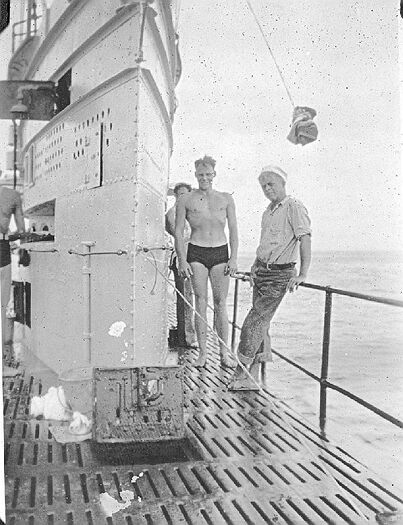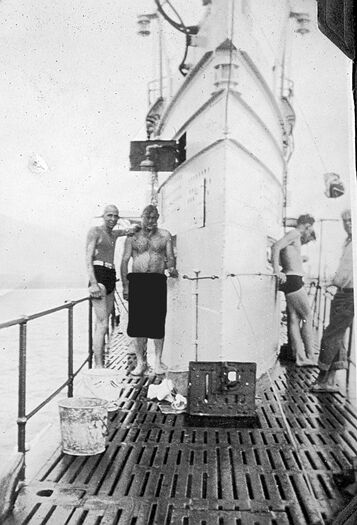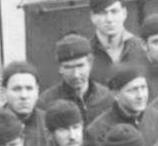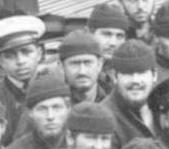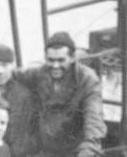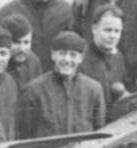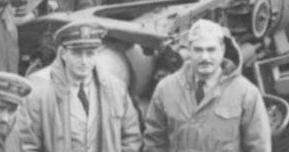S-42: Difference between revisions
Pbcjohnston (talk | contribs) (FInished adding captions) |
Pbcjohnston (talk | contribs) (Moved underwater photo from features page) |
||
| (2 intermediate revisions by the same user not shown) | |||
| Line 12: | Line 12: | ||
<small>Photo in the private collection of Ric Hedman. NOT a Navy photo.</small> | <small>Photo in the private collection of Ric Hedman. NOT a Navy photo.</small> | ||
[[File:Red bar sub new.jpg]] | |||
[[File:S-42 view of submerged gun.jpg|left|500px]] | |||
A very unusual photo taken through a port side deadlight in the conning tower of the S-42 sopmetime in the mid 1920's. The submarine is submerged at what seems like a depth of 50 to 75 feet. The bridge overhang can be seen at the top, and the 4"/50 caliber Mk 9 gun can be seen in the background. The two brackets with the round holes are mounts for the aiming scopes for the Pointer and one set for the Trainer is on the other side of the gun. The scopes are removed and taken below decks during submerged operations. | |||
<small>Photo in the private collection of Ric Hedman.</small> | |||
[[File:Red bar sub new.jpg]] | [[File:Red bar sub new.jpg]] | ||
| Line 32: | Line 39: | ||
<center> | <center> | ||
<gallery mode="packed" widths=" | <gallery mode="packed" widths="500px" heights="400px"> | ||
File:S-42 shark 1.jpg | File:S-42 shark 1.jpg | ||
File:S-42 shark 2.jpg | File:S-42 shark 2.jpg | ||
| Line 95: | Line 102: | ||
<small>Photos courtesy of crewmember John Allen. Used with permission.</small> | <small>Photos courtesy of crewmember John Allen. Used with permission.</small> | ||
[[File:Red bar sub new.jpg]] | |||
[[File:S-42 moored 1943 Dutch Harbor.jpg|left|500px]] | |||
A bow view of S-42 at Dutch Harbor, Alaska, approximately 1943. Her hull number is still present on her bow, but it has been painted over in flat black. This was to prevent her from being identified if spotted by the Japanese. The rounded covers over the pivots for the bow planes have been removed, likely due to a corrosion problem. The bow planes are partially rigged out. | |||
<small>Photo in the private collection of Ric Hedman.</small> | |||
[[File:Red bar sub new.jpg]] | [[File:Red bar sub new.jpg]] | ||
Latest revision as of 19:48, 11 September 2024

Photo in the private collection of Ric Hedman. NOT a Navy photo.
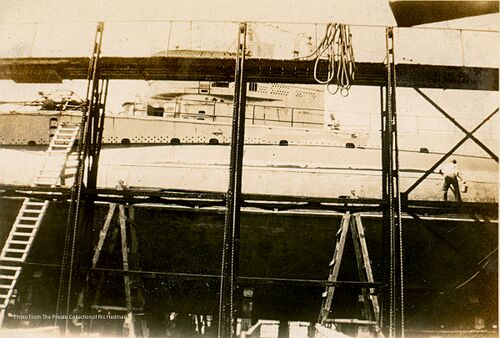
Photo in the private collection of Ric Hedman. NOT a Navy photo.
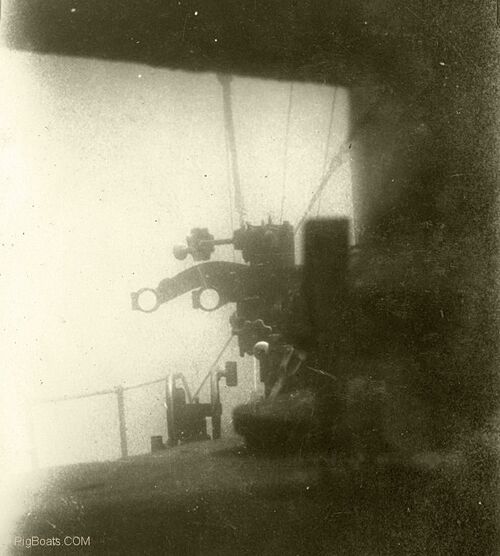
A very unusual photo taken through a port side deadlight in the conning tower of the S-42 sopmetime in the mid 1920's. The submarine is submerged at what seems like a depth of 50 to 75 feet. The bridge overhang can be seen at the top, and the 4"/50 caliber Mk 9 gun can be seen in the background. The two brackets with the round holes are mounts for the aiming scopes for the Pointer and one set for the Trainer is on the other side of the gun. The scopes are removed and taken below decks during submerged operations.
Photo in the private collection of Ric Hedman.
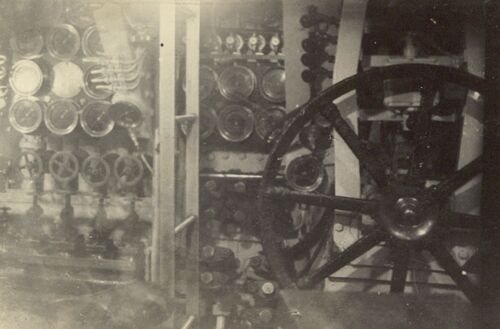
Photo courtesy of crew member John Allen, used with permission.
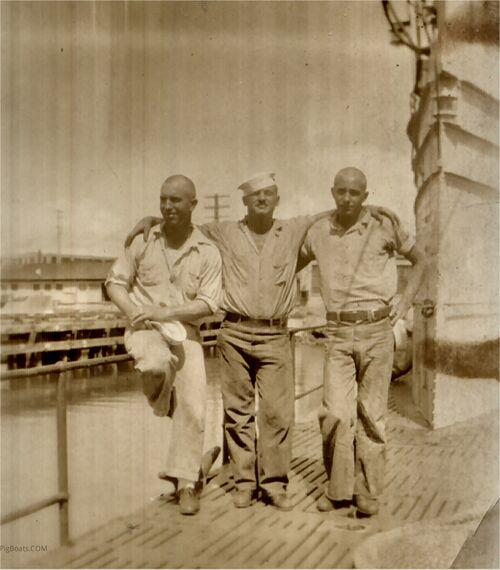
In the photo you can see two of the men, Nessin and the scrapbook owner, wearing their belt buckles off to the side. Though this could be a fashion statement it has probably a more practical nature. Working around moving and rotating machinery or open breaker panel electrical circuits caused men to be more cautious about metal-to-metal contacts.
Photo in the private collection of Ric Hedman. NOT a Navy photo.
What looks like a rope at the deck edge is actually a tow cable that these early submarines had permanently affixed. It was run through the bullnose at the bow and then attached to the portside of the hull at deck level. We now know that the shark was caught on the port side of the submarine.
These photos were taken from the S-42's small boat that would have used the davit to lift it from its storage locker under the walking deck.
Photos in the private collection of Ric Hedman. NOT Navy photos.
Photos in the private collection of Ric Hedman. NOT to be used without permission.
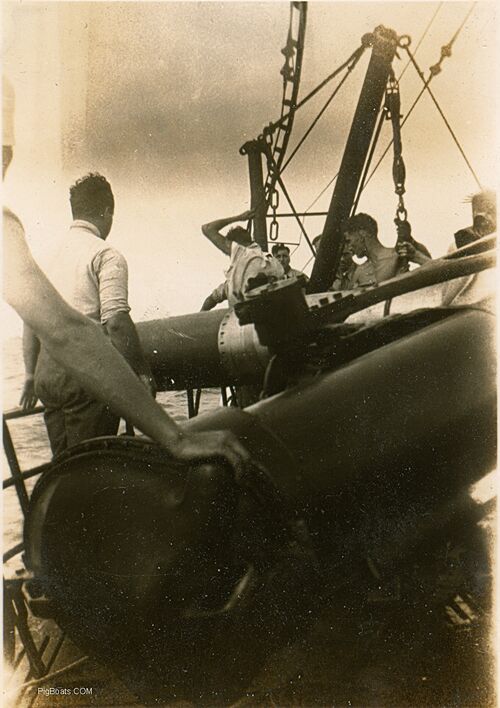
Photo in the private collection of Ric Hedman. NOT a Navy photo.

Photo in the private collection of Ric Hedman.
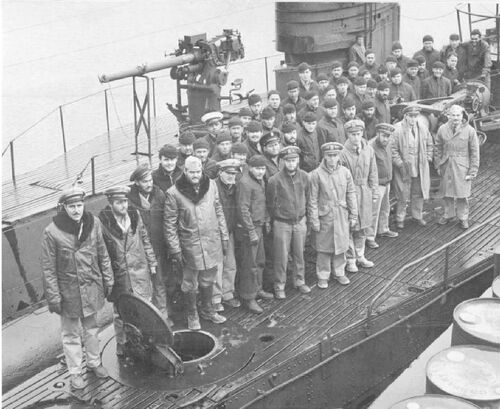
Photo courtesy of crewmember John Allen. Used with permission.
-
Center, John Allen
-
Center, QM3 Miller
-
"Shorty" Howe
-
Center, The ship's cook
-
Left, LCDR Charles F. Leigh, right LCDR Harley K. Nauman
Photos courtesy of crewmember John Allen. Used with permission.
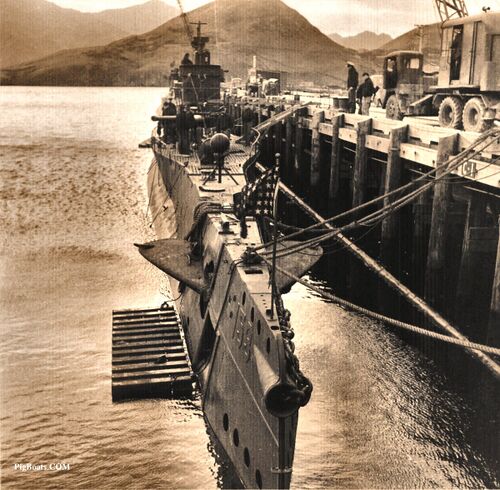
A bow view of S-42 at Dutch Harbor, Alaska, approximately 1943. Her hull number is still present on her bow, but it has been painted over in flat black. This was to prevent her from being identified if spotted by the Japanese. The rounded covers over the pivots for the bow planes have been removed, likely due to a corrosion problem. The bow planes are partially rigged out.
Photo in the private collection of Ric Hedman.
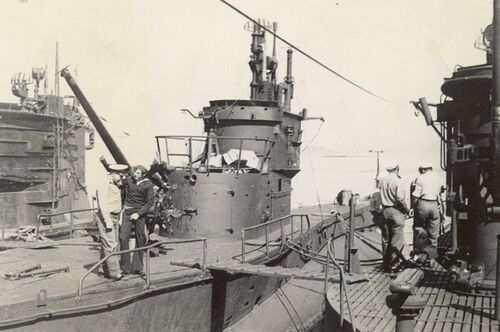
Photo courtesy of crewmember John Allen. Used with permission.
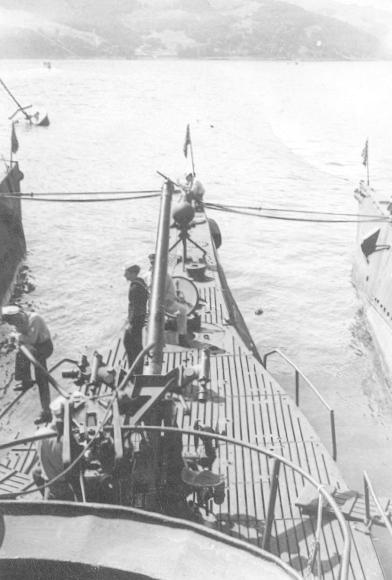
Photo courtesy of crewmember John Allen. Used with permission.
Page created by:
Ric Hedman & David Johnston
1999 - 2023 - PigBoats.COM©
Mountlake Terrace, WA, Norfolk, VA
webmaster at pigboats dot com

